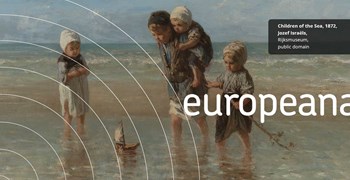The Song Legacy of Scottish-Irish Migration
Among the great many cultural connections between Ireland and Scotland, the mutual influence of each nation’s musical and singing traditions on the other is perhaps one of the most interesting. As a case in point, below are some archival examples which point to the legacy of people travelling back and forward between the two countries, and the songs they took with them.

Map of the British Isles, published in 1771. In the public domain.
The geographical closeness of north-east of Ireland to the south-west of Scotland provides one obvious conduit through which people and their songs have migrated. When the famous Antrim song collector Sam Henry journeyed across the Straits of Moyle to Argyll in the early 20th century to see what song connections there might be, he found a fine example in Archibald McEachran’s ‘Thatchers of Glenrae’, which tells the story of an Irish labourer coming to Kintyre for seasonal work. McEachran, of Kilblaan, had learned the song from a friend, who himself had learned it from the author, a man from Ballycastle in Antrim. Alex MacShannon of Campbeltown sings a version on Tobar an Dualchais:
As a return gift, Sam Henry taught Archibald McEachran ‘The Blazing Star of Drung’ – a love song from County Cavan, probably very similar to this version performed by Denis McDaid of Inishowen, which comes from the Irish Traditional Music Archive:
As the song then passed through oral tradition in Argyll, the name ‘Drung’ was localised to refer to ‘Drum’ in Kintyre, where the modified song entered the singing of the MacShannon family. James MacShannon, brother of Alex, sings the Kintyre version below:
As shown in the ‘Thatchers of Glenrae’, work being such a common reason for people to travel meant that their songs could end up entering oral tradition far away from their origins. Indeed, it’s believed as many as a third of the songs collected by Gavin Greig and James Duncan in the North-East of Scotland at the start of the 20th century were Irish in origin, possibly transported by Irish navvies building the extensive new local rail network in the previous century. ‘The Ould Bog Hole’, sung here by John Strachan of Fyvie, may be one such example:
It’s interesting to note that some songs, having taken root far from home, lived on in their new locations while they passed from memory back where they originated. Such an example is the Scottish bothy ballad ‘Falkirk Fair’, sung here by Mickey McDaid, which may well have been brought back to Ireland by a farm worker:
Ireland and its people were themselves such popular themes among song lovers in Scotland that many such supposed Irish songs may actually have been composed in Scotland for domestic consumption. See for example ‘Free and Easy to Jog Along’, whose earliest versions appear as song slips sold in the streets of Scotland’s cities; this version is sung by Jimmy Hutchison of Fife:
The Travelling peoples of both Ireland and Scotland have also contributed much to exchanges of music by sojourning in either country. The famous Stewart family of Blairgowrie have many fine Irish songs in their repertoire, learned while living and working in Ireland:
A final word should go to highlighting the many excellent contemporary Scottish and Irish tradition bearers who have adopted their neighbouring country as their home. By way of example are two of Ireland’s finest singers, Cathal McConnell of Fermanagh and Kevin Mitchell of Derry, who have for many years lived in Edinburgh and Glasgow respectively.
These are merely a few indicators of the many strands of social and musical life that connect Scotland and Ireland, but the archives from which the above examples are drawn offer the listener many more fine examples.
by Chris Wright, Tobar an Dualchais, Sabhal Mòr Ostaig, Isle of Skye, Scotland












